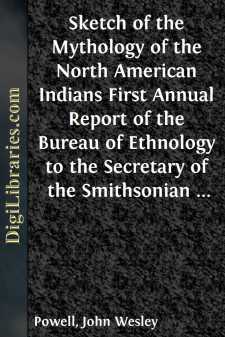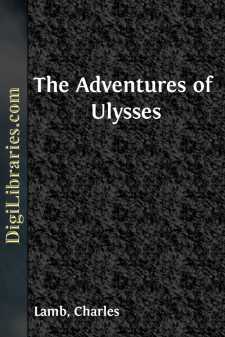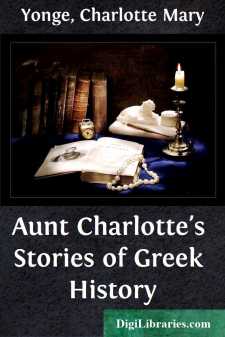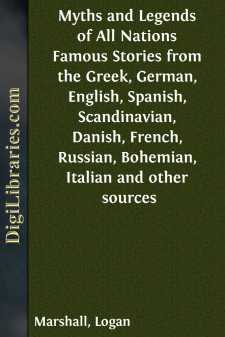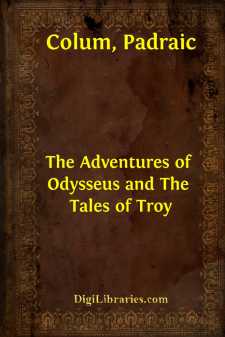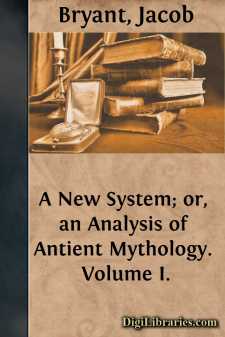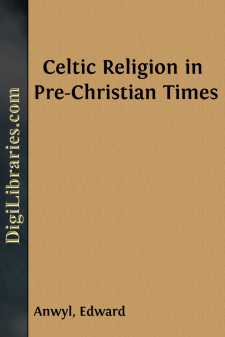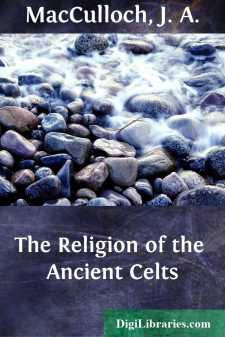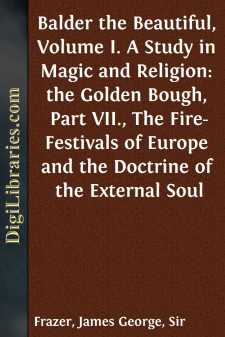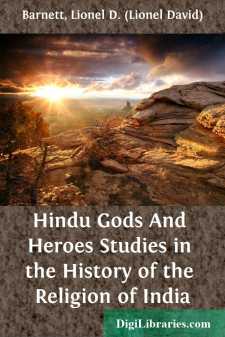Social Science
- Americana 1
- Anthropology 4
- Archaeology 7
- Criminology 2
- Emigration & Immigration 2
- Folklore & Mythology
- General 1
- Slavery 10
- Sociology 10
- Sociology of Religion 2
Folklore & Mythology Books
Sort by:
THE GENESIS OF PHILOSOPHY. The wonders of the course of nature have ever challenged attention. In savagery, in barbarism, and in civilization alike, the mind of man has sought the explanation of things. The movements of the heavenly bodies, the change of seasons, the succession of night and day, the powers of the air, majestic mountains, ever-flowing rivers, perennial springs, the flight of birds, the...
more...
by:
Charles Lamb
CHAPTER ONE The Cicons.—The Fruit of the Lotos-tree.—Polyphemus and the Cyclops.—The Kingdom of the Winds, and God Aeolus's Fatal Present.—TheLaestrygonian Man-eaters. This history tells of the wanderings of Ulysses and his followers in their return from Troy, after the destruction of that famous city of Asia by the Grecians. He was inflamed with a desire of seeing again, after a ten...
more...
CHAP. I.—OLYMPUS. am going to tell you the history of the most wonderful people who ever lived. But I have to begin with a good deal that is not true; for the people who descended from Japhet’s son Javan, and lived in the beautiful islands and peninsulas called Greece, were not trained in the knowledge of God like the Israelites, but had to guess for themselves. They made strange stories,...
more...
by:
Logan Marshall
PROMETHEUS, THE FRIEND OF MAN Many, many centuries ago there lived two brothers, Prometheus or Forethought, and Epimetheus or Afterthought. They were the sons of those Titans who had fought against Jupiter and been sent in chains to the great prison-house of the lower world, but for some reason had escaped punishment. Prometheus, however, did not care for idle life among the gods on Mount Olympus....
more...
by:
Padraic Colum
I his is the story of Odysseus, the most renowned of all the heroes the Greek poets have told us of—of Odysseus, his wars and his wanderings. And this story of Odysseus begins with his son, the youth who was called Telemachus. It was when Telemachus was a child of a month old that a messenger came from Agamemnon, the Great King, bidding Odysseus betake himself to the war against Troy that the Kings...
more...
by:
Jacob Bryant
The earliest authentic account we can obtain of the birth of this learned and celebrated writer, is from the Register Book of Eton College, in which he is entered "of Chatham, in the county of Kent, of the age of twelve years, in 1730,"—consequently, born in 1718. Whence a difference has arisen between the dates in this entry, and the inscription on his monument, hereafter given, we are...
more...
by:
Edward Anwyl
CHAPTER I—INTRODUCTORY: THE CELTS In dealing with the subject of ‘Celtic Religion’ the first duty of the writer is to explain the sense in which the term ‘Celtic’ will be used in this work. It will be used in reference to those countries and districts which, in historic times, have been at one time or other mainly of Celtic speech. It does not follow that all the races which spoke a form...
more...
by:
J. A. MacCulloch
CHAPTER I. INTRODUCTORY. To summon a dead religion from its forgotten grave and to make it tell its story, would require an enchanter's wand. Other old faiths, of Egypt, Babylon, Greece, Rome, are known to us. But in their case liturgies, myths, theogonies, theologies, and the accessories of cult, remain to yield their report of the outward form of human belief and aspiration. How scanty, on the...
more...
CHAPTER I BETWEEN HEAVEN AND EARTH § 1. Not to touch the Earth [The priest of Aricia and the Golden Bough] We have travelled far since we turned our backs on Nemi and set forth in quest of the secret of the Golden Bough. With the present volume we enter on the last stage of our long journey. The reader who has had the patience to follow the enquiry thus far may remember that at the outset two...
more...
THE VÃâDIC AGE Let us imagine we are in a village of an Aryan tribe in the Eastern Panjab something more than thirty centuries ago. It is made up of a few large huts, round which cluster smaller ones, all of them rudely built, mostly of bamboo; in the other larger ones dwell the heads of families, while the smaller ones shelter their kinsfolk and followers, for this is a patriarchal world, and...
more...


